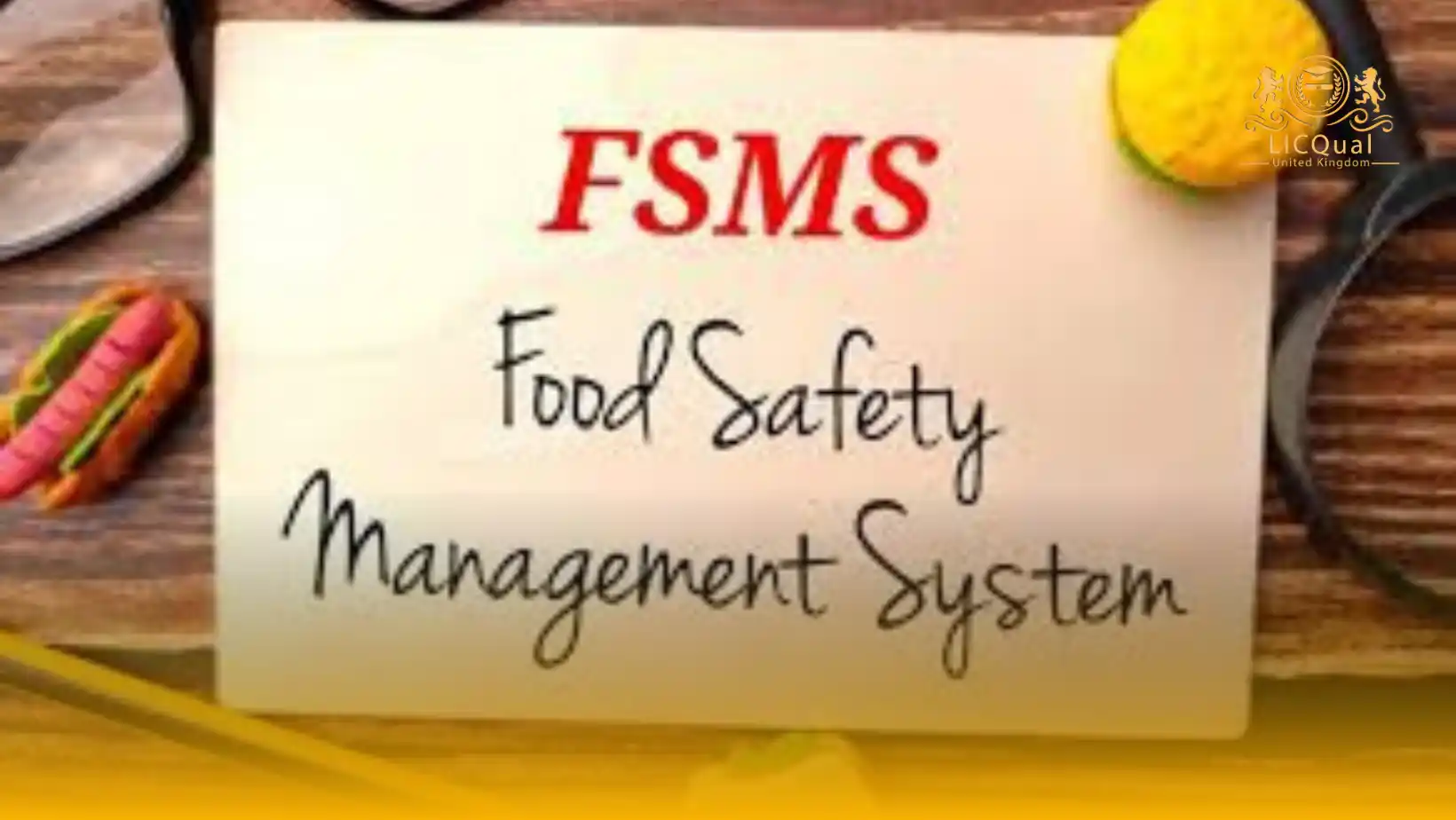The LICQual ISO 22000:2018 FSMS course is a comprehensive training program designed to equip food safety professionals with the knowledge and skills required to implement and manage a Food Safety Management System (FSMS) in line with ISO 22000:2018 standards.
This globally recognized certification is essential for professionals looking to ensure the highest levels of food safety within their organizations. ISO 22000:2018 provides a systematic approach to managing food safety risks, from the farm to the table, and this course offers an in-depth understanding of the standard’s requirements and practical application.
In the LICQual ISO 22000:2018 FSMS course, participants will explore the key principles of the ISO 22000:2018 standard, including the integration of the food safety management system with other business processes. The course covers essential topics such as hazard analysis, critical control points (CCPs), risk assessment, and the role of leadership in food safety.
Participants will gain hands-on knowledge of how to develop, implement, and maintain an effective FSMS that meets international food safety standards and regulatory requirements.
The course also delves into the importance of communication, documentation, and continuous improvement within an FSMS, ensuring that participants are equipped to handle food safety challenges and maintain consistent product quality.
By completing the LICQual ISO 22000:2018 FSMS course, individuals will be prepared to lead their organizations toward achieving certification, ensuring compliance, and driving improvements in food safety management across the food supply chain.
This course is perfect for food safety managers, quality assurance professionals, and anyone involved in food production, manufacturing, or distribution who wants to advance their knowledge and career in food safety management.
Course Overview
Qualification Title
LICQual ISO 22000:2018 FSMS
Total Units
6
Total Credits
40
GLH
120
Qualification #
LICQ2200090
Qualification Specification
To enroll in the LICQual ISO 22000:2018 FSMS, applicants must meet the following criteria:
|
Qualification# |
Unit Title |
Credits |
GLH |
|---|---|---|---|
|
LICQ2200090-1 |
Introduction to ISO 22000:2018 and Food Safety Management Systems |
8 |
24 |
|
LICQ2200090-2 |
Hazard Analysis and Critical Control Points (HACCP) in ISO 22000:2018 |
8 |
24 |
|
LICQ2200090-3 |
Risk Assessment and Management in Food Safety |
6 |
18 |
|
LICQ2200090-4 |
Establishing Food Safety Objectives and Targets |
6 |
18 |
|
LICQ2200090-5 |
Roles, Responsibilities, and Leadership in FSMS |
6 |
18 |
|
LICQ2200090-6 |
Documentation, Communication, and Continuous Improvement in FSMS |
6 |
18 |
By the end of this course, learners will be able to:
Understanding ISO 22000:2018 and Food Safety Management Systems
- Demonstrate a comprehensive understanding of the ISO 22000:2018 standard and its application in managing food safety.
- Explain the integration of ISO 22000:2018 with other management systems and the importance of a structured FSMS.
- Describe the objectives, scope, and benefits of implementing ISO 22000:2018 within an organization.
Applying HACCP Principles within ISO 22000:2018
- Identify food safety hazards and critical control points (CCPs) in food production processes.
- Apply the HACCP principles effectively within the ISO 22000:2018 framework to ensure food safety.
- Develop control measures to manage biological, chemical, and physical food safety risks.
Conducting Risk Assessment and Management in FSMS
- Utilize risk assessment tools to identify, evaluate, and prioritize food safety risks.
- Integrate risk management strategies into the ISO 22000:2018 framework to ensure systematic control of hazards.
- Determine corrective actions based on risk evaluation and ensure their effective implementation.
Setting Food Safety Objectives and Targets
- Develop clear, measurable food safety objectives aligned with ISO 22000:2018 requirements.
- Create and monitor key performance indicators (KPIs) to measure the success of food safety management systems.
- Implement strategies to achieve and improve food safety goals within an organization.
Understanding Roles, Responsibilities, and Leadership in FSMS
- Define the roles and responsibilities of staff in implementing and maintaining an effective FSMS.
- Illustrate the importance of leadership and employee involvement in fostering a food safety culture.
- Develop leadership strategies to ensure the effective functioning of food safety management systems.
Implementing Documentation, Communication, and Continuous Improvement
- Recognize the role of documentation in ensuring the effectiveness and compliance of FSMS.
- Apply communication strategies to ensure information flow within food safety teams and across the organization.
- Identify continuous improvement opportunities and implement processes to sustain and enhance FSMS performance through regular audits and reviews.
This diploma is ideal for:
Assessment and Verification
All units within this qualification are subject to internal assessment by the approved centre and external verification by LICQual. The qualification follows a criterion-referenced assessment approach, ensuring that learners meet all specified learning outcomes.
To achieve a ‘Pass’ in any unit, learners must provide valid, sufficient, and authentic evidence demonstrating their attainment of all learning outcomes and compliance with the prescribed assessment criteria. The Assessor is responsible for evaluating the evidence and determining whether the learner has successfully met the required standards.
Assessors must maintain a clear and comprehensive audit trail, documenting the basis for their assessment decisions to ensure transparency, consistency, and compliance with quality assurance requirements.

